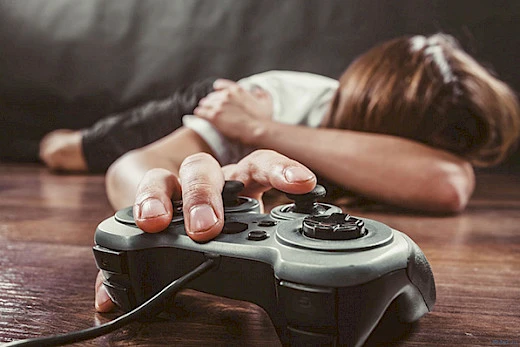China invents a method to combat video game addiction

In Shijiazhuang, Hebei Province, China, an unusual educational course was recently launched — a “course to quit eSports,” which has attracted widespread attention among parents and the media. The initiative comes from a local eSports club, which offered such classes to help teenagers break free from harmful video game addiction.
The course founder, Su Chenhao, explained that the idea originally emerged as a way to select and train future eSports athletes. Over time, however, it became clear that the overwhelming majority of participants (up to 85%) were not attending for potential but rather to escape real-life problems, using gaming as an excuse. He notes that the “quit course” is not about skill development, but about improving the mental health of children overly immersed in the virtual world.
The cost of the course depends on its duration and the degree of the teenager’s gaming addiction: a one-week program costs several thousand yuan, while a 22-day course can exceed 10,000 yuan. Moreover, after the very first day, one student surnamed Dan (pseudonym) cried and begged to be sent home the next day — the training proved too intense and emotionally demanding.
Su Chenhao explains this with the high workload and strict atmosphere, where gaming stops being entertainment and becomes exhausting work. According to him, when activities are turned into KPIs (key performance indicators), they lose their original meaning and appeal.
The club has existed since 2018, and nearly 4,000 teenagers have gone through the training. However, only a few truly had potential for professional eSports — in most cases, it was about providing psychological help to teens seeking to return to normal life. Those who do not want to continue in the program are often encouraged to return to school, with the promise that training can resume during winter or holidays — a kind of social motivation strategy.
Social media reactions indicate that the topic resonates strongly with society:
“Between a dream and gaming addiction, there may be only one keyboard.”
“The cost is too high.”
“When gaming becomes work, it stops being entertainment.”
“Not bad, helps addicted teenagers quit while leaving only the truly talented.”
“If a person lacks focus or motivation, they will not succeed at anything.”
The club’s initiative demonstrates a new approach to teenage gaming addiction: not just fighting the habit, but addressing it through realistic experiences and psychological adaptation.
You may also be interested in:
- Over 50 International Football Teams Choose Ayia Napa for Training Camps
- 2026 Budget Includes Funds for Paphos Hospitals Executive Director
- Coastal Promenade in Ayios Tychonas Under Urgent Repair After Storm
- 38-Year-Old Driver Detained in Larnaca After Ramming Two Patrol Cars
- "Smart" Meters: Mass Installation to Begin in Several Cyprus Districts in March


